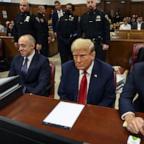FDA Wants More Time to Study Cold Meds for Kids
Oct. 3 -- THURSDAY, Oct. 2 (HealthDay News) -- The U.S. Food and Drug Administration will take its time considering whether to ban over-the-counter cold medicines for children, a top agency official said Thursday at a public hearing on the matter.
Dr. John Jenkins, who heads the FDA's Office of New Drugs, said the agency needed to get more data on whether "OTC" medicines are safe and effective for children between 2 and 6 years old before taking any action, the Associated Press reported.
FDA officials are also concerned that an immediate ban, which is supported by leading pediatricians' groups, might cause parents to give adult medicines to their kids.
"We do not want to do something that we think will have a positive impact, only to have an unintended negative," Jenkins said at the hearing, according to the AP report. "That could be an even worse situation."
The FDA, which earlier this year recommended that kids under 2 not receive OTC medicines, was meeting with the public to help answer the even more important question: Should any kid get OTC medicines?
The issue is not a new one for regulatory bodies or the public.
In January, the FDA issued an updated health advisory that cough and cold preparations not be used to treat children under the age of 2 because of possible life-threatening complications. These products include decongestants, expectorants, antihistamines and cough suppressants.
Just prior to that advisory, the makers of dozens of cough and cold remedies marketed for infants voluntarily recalled the products.
Despite scant evidence that such remedies are actually effective in children, or adults, an estimated 10 percent of American kids take one or more cough and cold medications during a given week.
Yet the preparations can do more harm than good, research suggests.
An FDA review of records filed with the agency between 1969 and September 2006 found 54 reports of deaths in children associated with decongestant medicines made with pseudoephedrine, phenylephrine or ephedrine. It also found 69 reports of deaths associated with antihistamine medicines containing diphenhydramine, brompheniramine or chlorpheniramine. Most of the deaths involved children younger than 2.




